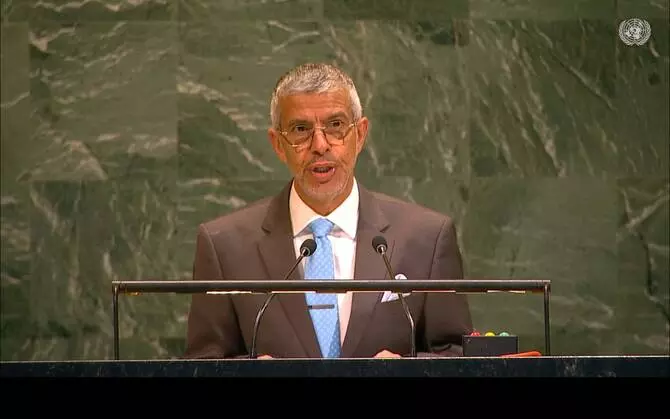
For Israel, is it the beginning of the end?
text_fieldsNearly two years into Israel’s genocide against Palestinians, this month’s United Nations General Assembly session carries special significance. Analysts suggest that Israel, which has long defied UN resolutions, and its ally, the United States, now accused of unlawfully denying visas to Palestinians attending the UN session, may finally be facing limits to their actions. These nations are becoming increasingly isolated on the International front. Israel continues its brutal genocide while also expanding its occupation in the West Bank. As the country repeatedly violates clear UN dictates with growing defiance, even the European nations that once supported it are being forced to reconsider their stance. The Zionist stance, which for long disregarded even its allied nations, has now begun to open their eyes. While Israel has long defied international law, the situation is shifting, and the same law now appears poised to hold it accountable. The UN General Assembly session begins on the 9th of this month. Last year, the Assembly had asked Israel to withdraw from the occupied Palestinian territories, setting a deadline that expires on the 13th of this month. Not only has Israel failed to end its occupation, but it is also expelling residents from Gaza and further strengthening its hold over the West Bank. This defiance, impossible to justify in any manner, is now forcing even several of Israel’s friendly nations to revisit their positions.
This turn of events marks a significant shift. As an inevitable twist in history, the Zionist state is beginning to face a major crisis. Two significant challenges have already emerged. The first is legal in nature. Several countries, including France, Belgium, Malta, and Australia, are preparing to recognise Palestine as a sovereign state, despite opposition from Israel and the United States. Even the UK and Canada are likely to follow suit. Once these nations take this step, especially with the UN resolution's deadline expiring this month, their own legal frameworks will impose new obligations on them. Until now, Palestine has been treated merely as a disputed territory. But once it is granted statehood, these countries will be compelled to view Israel as an occupying power. Consequently, they may be legally required to impose non-cooperation, enforce boycotts, and, if necessary, even consider military measures against Israel. The shift is not just legal but also political, as many nations are beginning to realise that maintaining close ties with Israel has become a losing bargain. Despite its proclaimed objectives, Israel has achieved little beyond mass killings and starvation, and several countries are deciding they no longer wish to be associated with its actions against the Palestinian people fighting for their freedom. It is becoming increasingly evident that Israel’s justifications for its actions are built on falsehoods. As these realities surface, governments and corporations alike find themselves legally bound (under their own frameworks) to avoid cooperating with Israel and, in some cases, to openly oppose it. It has become impossible for even the governments of 'friendly' countries like Italy, Canada, the UK, Spain, and France to avoid the shift to the opposing side. Israel’s second major challenge lies in its growing isolation on the global stage, as it has increasingly become one of the most disliked nations worldwide. Its long-used defence of “anti-Semitism” as a shield has largely lost its impact. Even the once strongly pro-Israel “Abraham Accord” now appears to be weakening in influence.
The upcoming “Two-State Policy” conference, set to be hosted by Saudi Arabia and France in New York on the 22nd of this month, is expected to deal a significant blow to Israel’s diplomatic standing. In a notable departure from its usual stance, the UAE has issued an open warning to Israel over its settlement expansion in the West Bank. Beyond legal frameworks, rising public pressure across the globe is compelling many governments to take firmer positions against Israel’s policies. Adding to this momentum, the “Sumud Flotilla,” carrying participants from 44 countries, is expected to reach the Palestinian coast by the 20th. In the United States too, opposition to Israel has been becoming more vociferous. Within Israel, political bickering continues without signs of easing, adding to the turmoil. The army is facing exhaustion, and attempts to recruit large numbers of young people into the military have met with unprecedented resistance, creating yet another crisis for the nation. As the second anniversary of the ongoing genocide approaches, the world seems to be awakening to the situation. One thing appears certain: sooner or later, time will demand recompense for the martyrs of Palestine.









